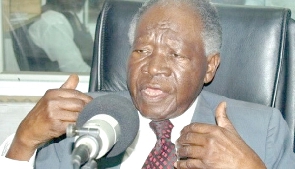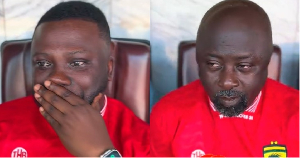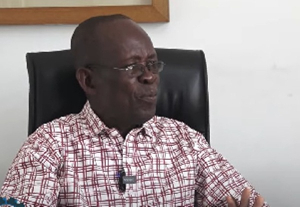Under the regime of Osagyefo Dr. Kwame Nkrumah, there have been many tales, ordeals and encounters between him and persons who worked closely with him.
A former diplomat, who worked with Dr Nkrumah and all successive government’s since independence, K.B. Asante once shared a story of how daunting a task it was for ministers of state to work under Ghana’s first president.
He recounts that some ministers under Nkrumah’s government could not even take their lunch without scrutiny as they had to closely monitor the major news bulletin on development in the country. According to him, ministers were only permitted to take their lunch after 1pm.
In a Citi News article dating back to 2015, K.B Asante said ministers who failed to heed to the task were often fired from office as it was a matter of necessity instead of choice.
“It was believed that ministers did not take their lunch until after the 1 o’clock news because they were sacked very often at the 1 o’clock news without their knowledge, indeed some Ministers feared Nkrumah,” the former Diplomat and Statesman recounted.
K.B. Asante also described the Dr Kwame Nkrumah as visionary leader who worked tirelessly to ensure the best results were achieved under his tenure as president of Ghana.
“Kwame Nkrumah possessed great leadership qualities and skills that contributed to his success in reaching the level of economic development experienced during his nine years in office”
“If it means strength, and character, he (Nkrumah) had it all, he also had a purpose and a vision. Kwame Nkrumah knew what he was doing, every morning when he came to the office, he had an idea and he would ask you to write a memo and within an hour he wanted a draft to discuss,” K.B. Asante shared.
Touching on Dr. Kofi Abrefa Busia who succeeded Dr Nkrumah in 1969, the former Diplomat described him as an equally good leader and one that was naturally interested in strengthening the local institutions.
He however pointed out that Dr Busia’s inclination to Western ideologies may have contributed to his overthrow on January 13, 1972 by General Ignatius Kutu Acheampong.
“…Perhaps that was why there was a coup, his ideas were not as centered on Ghana as Nkrumah, he (Busia) being a scholar and democrat went by the Western methods,” Mr Asante said.
In his view, General Acheampong’s overthrow, although controversial, was successful within the first three years as it resulted in swift ‘rules and purpose’.
He added that the regime however failed after Ghana began the adoption of models propounded by some international organisations such as the International Monetary Fund, World Bank and the subsequent lax in economic policies for development.
For Dr Hilla Limann, K.B Asante recounted a rather principled leader who had limited time to implement major economic reforms during his tenure.
“This was also coupled with the economic instability he [Dr Limann] succeeded,” K.B. Asante concluded.
The late Flt. Lt. Rtd. Jerry John Rawlings on January 7, 1993 became the first president of Ghana under the Fourth Republic. Since then, there have been five presidents democratically elected to served under the Fourth Republic.
MA/KPE
Ghana’s leading digital news platform, GhanaWeb, in conjunction with the Korle-Bu Teaching Hospital, is embarking on an aggressive campaign which is geared towards ensuring that parliament passes comprehensive legislation to guide organ harvesting, organ donation, and organ transplantation in the country.
Watch the latest edition of BizTech and BizHeadlines below:
Click here to start the nomination process for the 2023 GhanaWeb Excellence Awards
General News of Saturday, 16 September 2023
Source: www.ghanaweb.com













